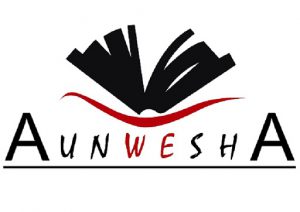Re-Architecting Deep Document Understanding at Aunwesha: A Technological Deep Dive
Published: 2nd January, 2025
In today’s data-driven enterprise ecosystem, unstructured document data is not merely a liability to be managed—it is a mine of latent insights waiting to be unlocked. Aunwesha’s LearnITy™ Knowledge Engine (LKE) has long been at the forefront of deep document understanding (dDU), enabling enterprises to extract, validate, analyze, and operationalize knowledge from dense documents. Now, Aunwesha is undertaking a fundamental revamp of its product architecture to align with cloud-native principles, self-service data engineering, and scalable analytics.
From Monolithic to Modular: Evolving the Architecture
The original architecture of LKE was tightly coupled—processing logic, data ingestion, and visualization were interwoven in a monolithic deployment. Recognizing the need for agility and scale, Aunwesha is now embracing a modular, microservices-based architecture that emphasizes separation of concerns, pipeline reusability, and infrastructure as code.
Key changes include:
- Data Lakes for Raw Document Storage
All ingested documents (PDFs, DOCX, XLSX, etc.) are now stored in a centralized Data Lake architecture (e.g., using Amazon S3 or Hadoop-based HDFS). This enables scalable, schema-on-read processing, allowing downstream services to operate on raw, semi-structured, or enriched documents without re-ingestion. - Metadata and Knowledge Layer
Structured outputs of LKE (like entity graphs, relationship maps, and classification tags) are stored in an analytical data store—typically using a NoSQL DB (like MongoDB) for flexibility and a graph database (like Neo4j) for relationship traversal.
Self-Service Pipelines: Drag-and-Drop Ingestion & Transformation
To democratize the use of LKE, Aunwesha is developing a low-code pipeline builder. Business analysts, domain experts, or data engineers can visually construct document processing workflows through a drag-and-drop interface, without writing code.
Features:
- Ingestion Nodes: Configure connectors for FTP, email, web scraping, or cloud drives.
- Transformation Blocks: Apply NLP routines (NER, key phrase extraction), language models (LLMs), and domain-specific validators.
- Human-in-the-loop Stages: Embed checkpoints for expert verification, where AI-extracted insights can be reviewed and refined.
The orchestration is built on top of Apache Airflow or KubeFlow Pipelines, allowing scheduling, retry logic, and DAG-based tracking of document flows.
LLMs + Ontologies = Richer Understanding
The core of deep document understanding now integrates fine-tuned language models (based on BERT, RoBERTa, or LLaMA variants) with domain ontologies crafted by business users. These hybrid models help in:
- Context-aware entity disambiguation (e.g., distinguishing “capital” as finance vs. city).
- Cross-document reasoning (e.g., linking sections across multiple documents for consolidated insight).
- Temporal and conditional extraction (e.g., understanding clauses that depend on dates or other triggers).
Interactive Insight Layer: Visualization and Exploration
Once the document corpus has been processed and interpreted, insights are rendered via a newly built visual analytics module. Using a stack built with:
- Apache Superset or custom React dashboards
- Embedded graph visualizations using D3.js or Cytoscape.js
- Conversational UI integration with LearnITy™ Conversation (chatbot interface)
Users can query document content, visualize trends (e.g., clause frequency over time), and drill into data lineage (e.g., trace how an extracted KPI was computed across documents).
Security and Governance
In light of increasing data privacy regulations, LKE now includes:
- Role-based access control and row-level security for sensitive documents
- Audit trails for every transformation and review event
- Data masking and redaction capabilities, particularly when documents are exposed to AI models or external reviewers
Road Ahead
Aunwesha is not just updating its stack—it is redefining what it means to understand documents deeply. By embracing modern data architecture patterns, building intuitive tooling for data workflows, and embedding intelligence at every step, LKE is positioned to become a pivotal knowledge platform for sectors like finance, legal, energy, and healthcare.
The next evolution includes native support for multilingual document understanding, real-time extraction pipelines, and custom AI agents that specialize in legal, compliance, or procurement analysis.
In Closing
Deep document understanding is no longer just about reading a document. It’s about transforming static information into dynamic, contextual, and interconnected knowledge. Aunwesha’s renewed technical foundation is a leap toward that vision—one where documents talk, collaborate, and evolve with the business.
